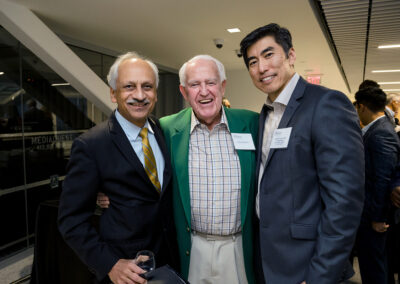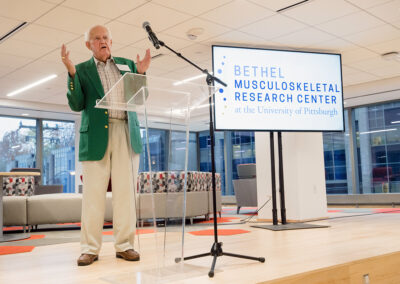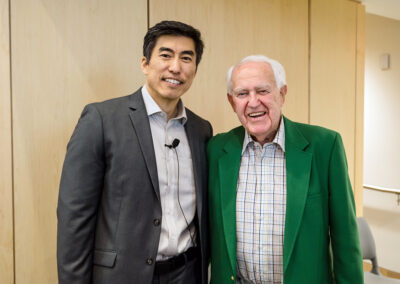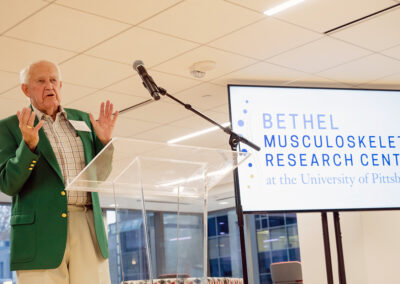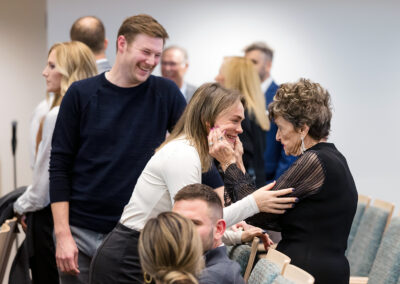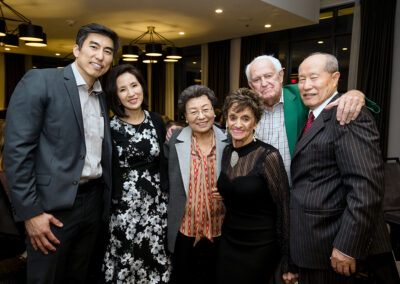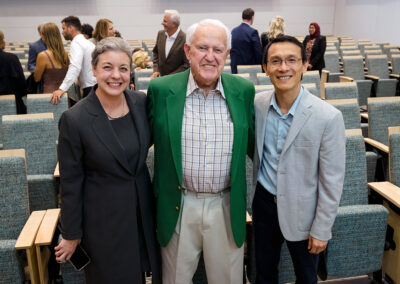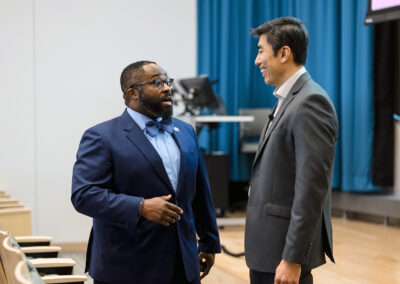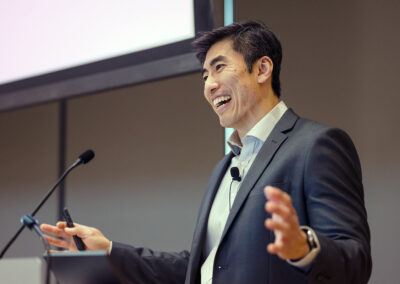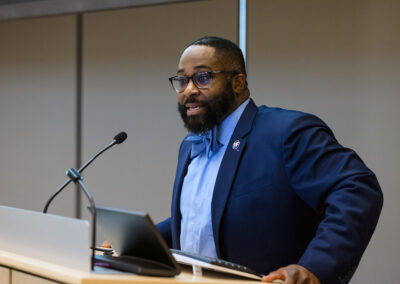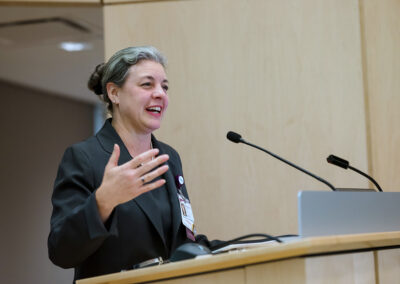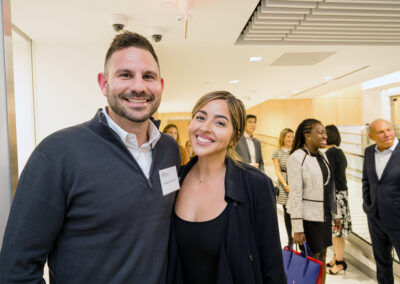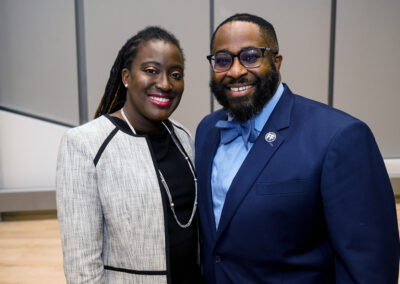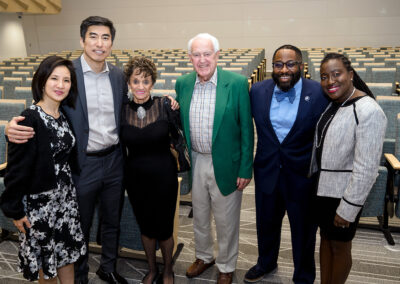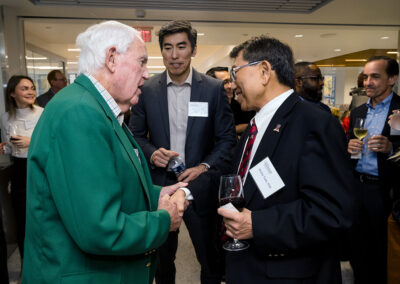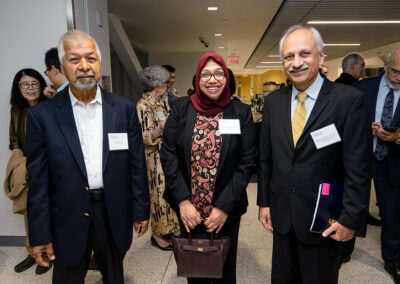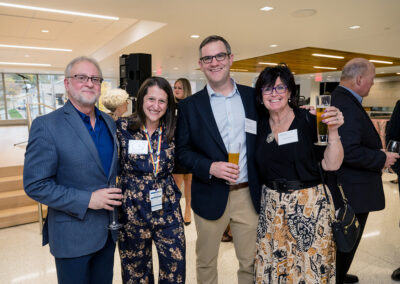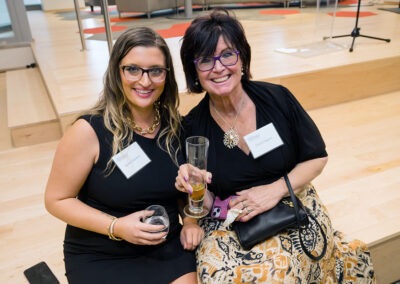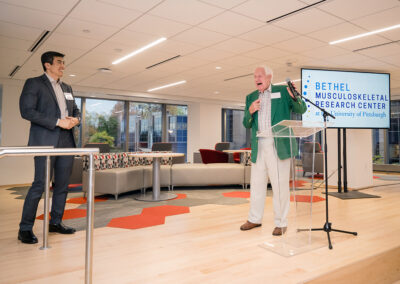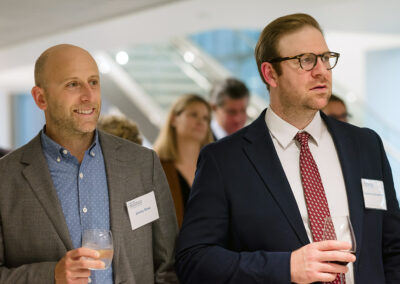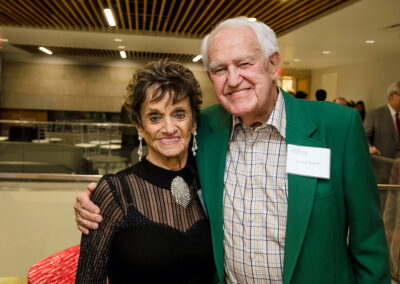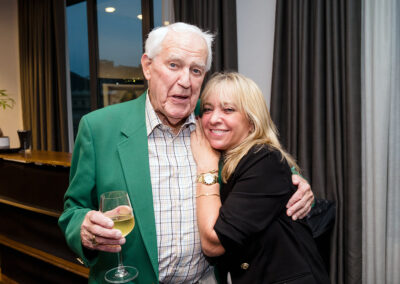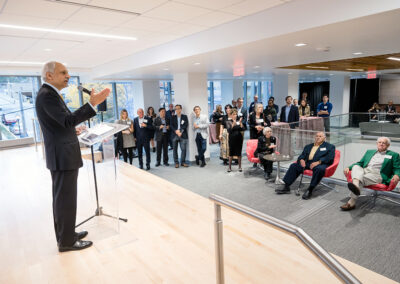About Us >>
About Our Research Center
Message from the Executive Director
Welcome to the Orland Bethel Family Musculoskeletal Research Center (BMRC). Our mission is to support scientific curiosity, discovery, education and the dissemination of ideas within the field of musculoskeletal research and to improve patients’ lives.
It has been reported that about 50% of early-career post-doctoral researchers leave academic careers within five years of completing their PhDs. This departure is due, in part, to the challenges of obtaining funding for their research interests. Early to mid-career researchers and clinician scientists often struggle to obtain significant government funding as they lack preliminary research data to apply for larger grants. They are discouraged from pursuing what are regarded as “risky” yet high-yield projects for fear of failure.
The center was established in October 2023 through the generosity of one of my patients, Orland Bethel, founder of Hillandale Farms.
With his exceptional gift, matched by the University of Pittsburgh School of Medicine, Mr. Bethel and his family have begun a foundational and generational change in the way we support musculoskeletal research here at the University of Pittsburgh. It is nothing short of transformative.
Our 3 Areas of Focus
- Supporting young, early-career researchers and trainees so that their ideas and talents can produce breakthrough treatments for musculoskeletal ailments.
- Supporting the education of undergraduate, PhD and medical students in pursuit of translational research.
- Dissemination of knowledge, bringing together scientific collaborations via research seminars and timely publication of new and relevant data.
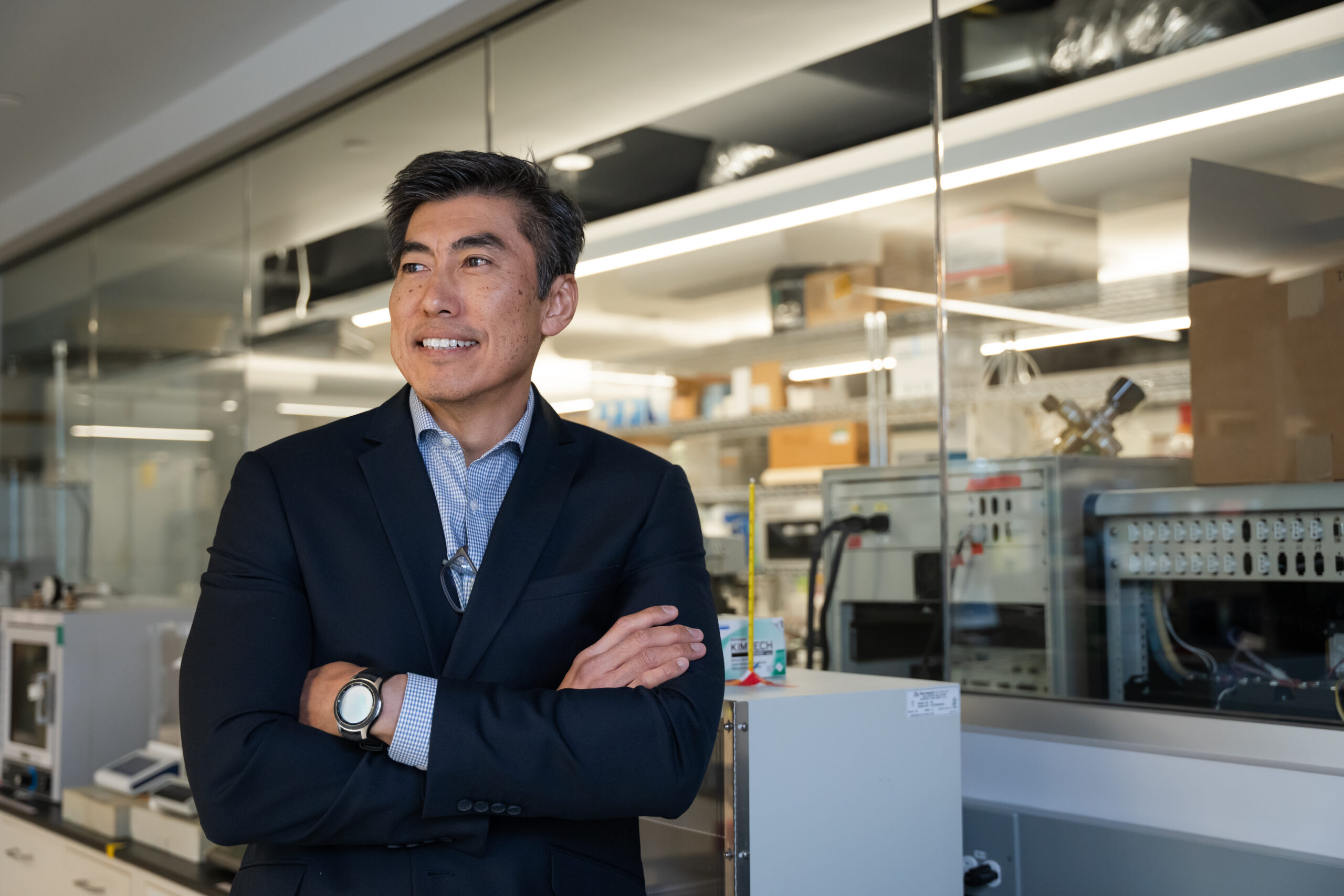
Executive Director, Bethel Musculoskeletal Research Center
Our Mission and Promise
Our Mission
- Support and foster investigators to pursue careers in translational, clinical and basic science research in musculoskeletal-related fields.
- Encourage and support the education of trainees interested in musculoskeletal clinician scientist pathways.
- Support the discovery and sharing of scientific knowledge to benefit the musculoskeletal research community.
Our Promise
- Support existing and new musculoskeletal investigators, with emphasis on early- and mid-phase clinician scientists, to pursue and continue careers in translational research.
- Encourage early-phase musculoskeletal scientific projects that are high-risk and high-reward.
- Create and support education programs through scholarships, research symposiums and seminars to disseminate new musculoskeletal research findings.
Our Immediate goal
Support a collaborative community of scientists and trainees to share knowledge, tools and models to perform high-impact musculoskeletal research.
Our Long-term goal
Develop an international reputation in musculoskeletal research by creating a one-of-a-kind research environment to promote and preserve musculoskeletal health.
For more information, contact bethel@pitt.edu.
